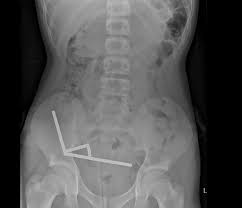A disturbing medical case in the New Zealand Medical Journal has highlighted the life-threatening risks of high-powered magnets after a 13-year-old boy was hospitalized for swallowing nearly a hundred of them. The teenager ultimately lost part of his bowel as a result.
The boy, whose identity was not disclosed, ingested between 80 and 100 small neodymium magnets, each measuring about five millimeters by two millimeters. These powerful magnets, often sold as desk toys for adults, can cause catastrophic internal injuries if swallowed.
After four days of abdominal pain, the teenager sought medical help. Scans revealed that the magnets had formed four separate chains inside his digestive tract, forcefully clamping sections of his bowel and large intestine together. The resulting pressure caused necrosis—the death of intestinal tissue due to restricted blood flow—and posed a severe risk of perforation and infection.
During emergency surgery, doctors removed the magnetic chains, but the intestinal damage was so extensive that part of the boy’s bowel had to be removed. He spent eight days in the hospital recovering before being discharged.
Despite bans on the sale of high-powered magnets in New Zealand and Australia, enforcement remains a persistent challenge. The magnets are still easily available online, often at low cost and without any age restrictions.
The boy told doctors he bought the magnets from the online retailer Temu. In response, the company said it could not independently verify the claim but stated that all magnets sold on its platform comply with New Zealand regulations. “While these products are lawful to sell, they can be dangerous if swallowed, and we support efforts to raise public awareness about magnet safety,” Temu said in a statement.
In the United States, the Consumer Product Safety Commission introduced mandatory safety standards in 2022 to limit the strength of loose magnets sold for recreational or stress-relief purposes, citing ongoing safety concerns.




